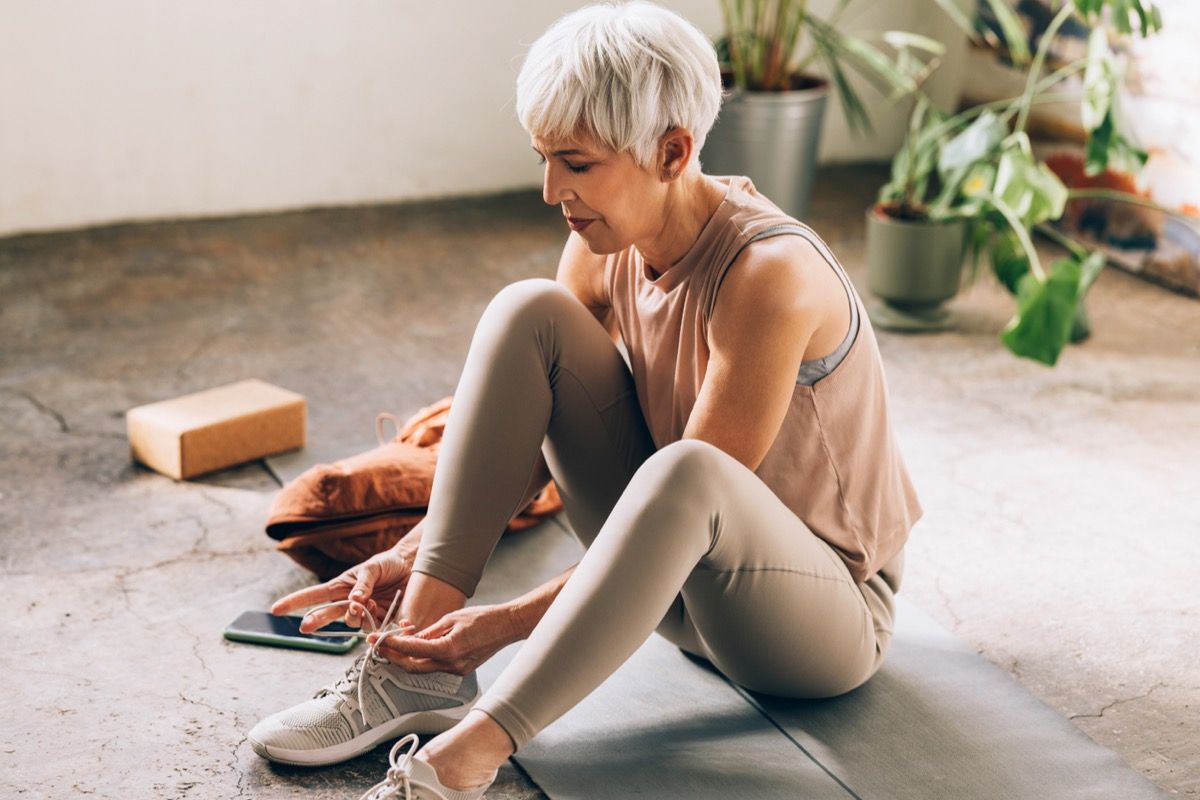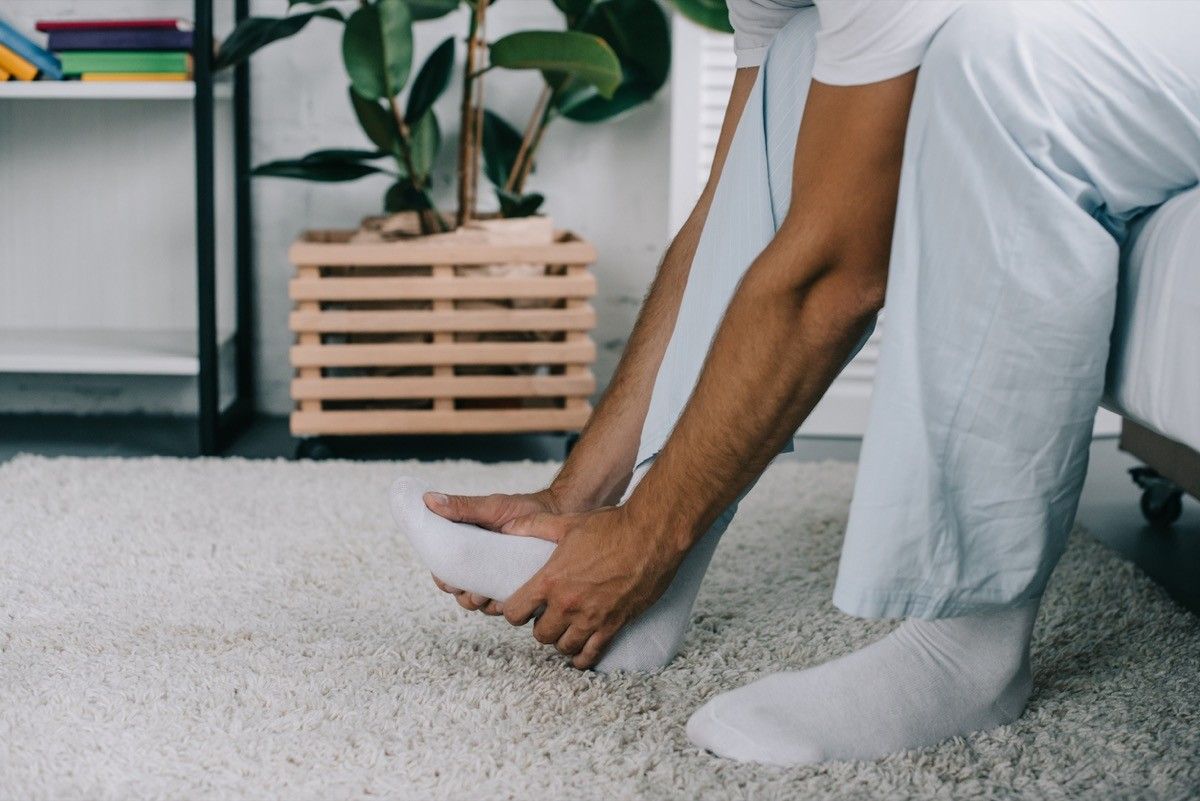If You’re Over 65, Don’t Wear These 5 Clothing Items When Jogging

As you get older, it may be tempting to turn down the intensity of your workout routine. However, cardiovascular exercise such as jogging, running, swimming, or cycling is especially important for seniors. Yet fitness experts say if you’re over 65, you should take extra precautions any time you feel motivated to get moving. In particular, you’ll want to dress properly for your jogging or running workout. After all, the last thing you need is for your clothing choices to slow you down—or worse, inadvertently cause an injury. Wondering what not to wear on your next jog? These are the five clothing items you should keep in your closet the next time you hit the open road on foot.
RELATED: If You’re Over 65, Don’t Wear These 5 Clothing Items When Traveling.
1
Worn-out or unsuitable shoes

Footwear should be your first priority when you’re heading out for a run. Sean Klein, CPT, a certified personal trainer with over 15 years in the fitness industry and the founder of Programme App, says it’s important to replace unsuitable jogging shoes with proper athletic footwear that provides cushioning, support, and stability.
“Old or worn-out shoes mostly lack the necessary support and cushioning needed for proper foot alignment, which leads to discomfort and potential injuries such as shin splints, plantar fasciitis, and knee pain,” he warns.
He also notes that choosing the wrong type of footwear, including sandals, sneakers that lack arch support, and dress shoes, can lead to serious injury. That’s because they fail to provide “proper grip and stability on different surfaces, making it harder to maintain balance and potentially leading to falls.”
2
Non-supportive socks

Most people are well aware that they need supportive sneakers when jogging. Fewer people realize that they should also have supportive socks.
Klein recommends moisture-wicking socks with added arch support that are designed for athletic activities. He says these will help prevent blisters, chafing, and discomfort while jogging.
“I do not recommend wearing cotton socks that absorb moisture, leading to wet and uncomfortable feet,” he tells Best Life.
RELATED: If You’re Over 65, Don’t Wear These 5 Clothing Items When It Snows.
3
Cotton clothing

Cotton is a versatile fabric that suits most occasions, but the experts warn against jogging in cotton clothing if you’re over 65. That’s because seniors are more likely to suffer from skin irritation, and are less able to regulate sudden changes in body temperature.
“Seniors might opt for cotton for its natural feel, but it’s not ideal for exercise as it absorbs and retains moisture, leading to discomfort and potential chafing,” says Chris Pruitt, CPT, a certified personal trainer and the CEO of Workout Healthy. “Instead, moisture-wicking fabrics are recommended to keep the skin dry and comfortable during physical activity.”
4
Loose-fitting clothing

The right clothing item in the wrong size or cut can also wreak havoc during your run.
“Baggy pants may be chosen for ease and comfort, but they present a tripping hazard,” says Pruitt. “Close-fitting, stretchable pants or shorts are safer, allowing for free movement without the risk of catching on objects.”
Klein says he never recommends that his clients wear loose-fitting clothes that could get caught on obstacles or cause chafing during jogging. He instead suggests opting for well-fitting, moisture-wicking, breathable fabrics that provide comfort and mobility while preventing discomfort or irritation.
RELATED: 5 Items You Shouldn’t Wear on Hot Days If You’re Over 65.
5
Hazardous accessories

Seniors might wear jewelry as part of their daily routine or for sentimental reasons, Pruitt acknowledges. “However, during jogging, large or dangling pieces can become entangled with clothing or exercise equipment, posing a risk of injury,” he says.
Before you start your jog, he recommends removing jewelry, watches, and other accessories, noting that this will help “prevent distractions and accidents, ensuring a safer workout experience.”